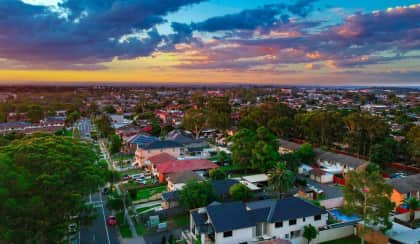A beginner’s guide to rooming houses

So, what is a rooming house?
A rooming house is a property where four or more people share the premises. Each tenant has their own space and their own residential agreement, unlike in a shared house where everyone comes together and signs the same agreement. Rooms are rented out individually, while common areas such as the kitchen, living room, bathrooms, and laundry are shared between tenants.
For those looking for a little more privacy, some rooming houses include rooms that have additional private amenities, such as cooking facilities and a courtyard. When you add up the benefits, rooming houses are far easier on your wallet than renting a one-bedroom unit, without missing out on any of the amenities.
Who are rooming houses for?
Rooming houses have historically been popular with singles, students, and retirees. They have been known to provide a necessary solution to those with a low income, though more people are now turning to rooming houses as an option due to cost-of-living pressures.
Rooming houses may be a viable solution for families too, particularly those affected by a breakdown of a relationship, the end of a lease, or a tighter financial situation. Often modern and stylish in design, rooming houses offer viable solutions for people leading all sorts of lifestyles.
Rent for a single room in a rooming house can cost anywhere between $180 and $300 per week, though it often sits closer to the $200 mark. This is in comparison to the average rental price in Melbourne, which sits at $425 per week. The price you can expect to pay depends on which area you’re looking in and whether the final price includes utilities and maintenance costs.
How are rooming houses managed?
These properties are generally managed by an experienced rooming rental manager. They must comply with rules and regulations set out by the government to ensure the property is comfortable and liveable for all tenants. These minimum standards relate to privacy, security, safety, and amenity. Rooming houses must be registered with the local council and may be inspected to confirm standards are met. This ensures rooming houses feel and operate like normal homes, as well as fostering a sense of community among tenants.
To ensure harmony, most rooming houses operate with a clear code of conduct. Everyone living on the property follows a set list of house rules, and an unruly tenant can be removed if they disrupt the household. Everyone carries the responsibility to look after their own room, so you can’t be held accountable if a housemate is slack with maintaining their room.
With over 1,300 registered rooming houses in Victoria, there is something out there to suit every tenant’s needs. New properties are constantly under construction, offering modern, accessible, and furnished accommodation for renters, such as the various Hillbrook Rooming Houses in Melton, with features such as generous backyards and spacious balconies.
With rental prices putting pressure on singles, couples and families across the country, rooming houses could be just the solution many Australians are searching for.
Tristan Angelini is the managing director of Hillbrook
